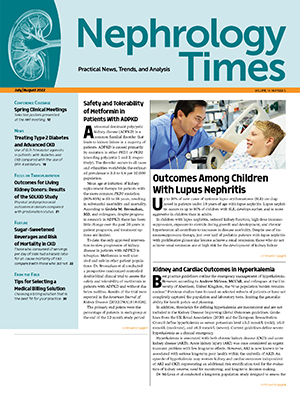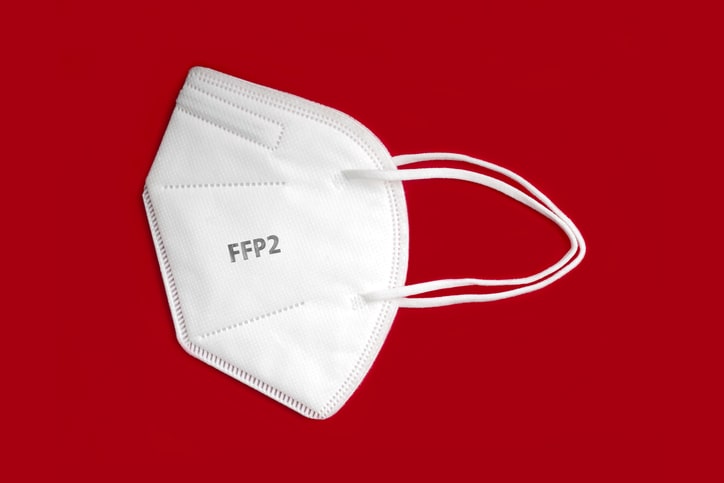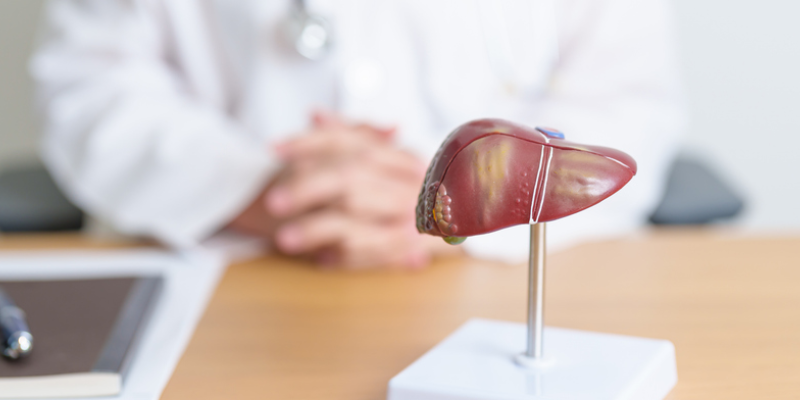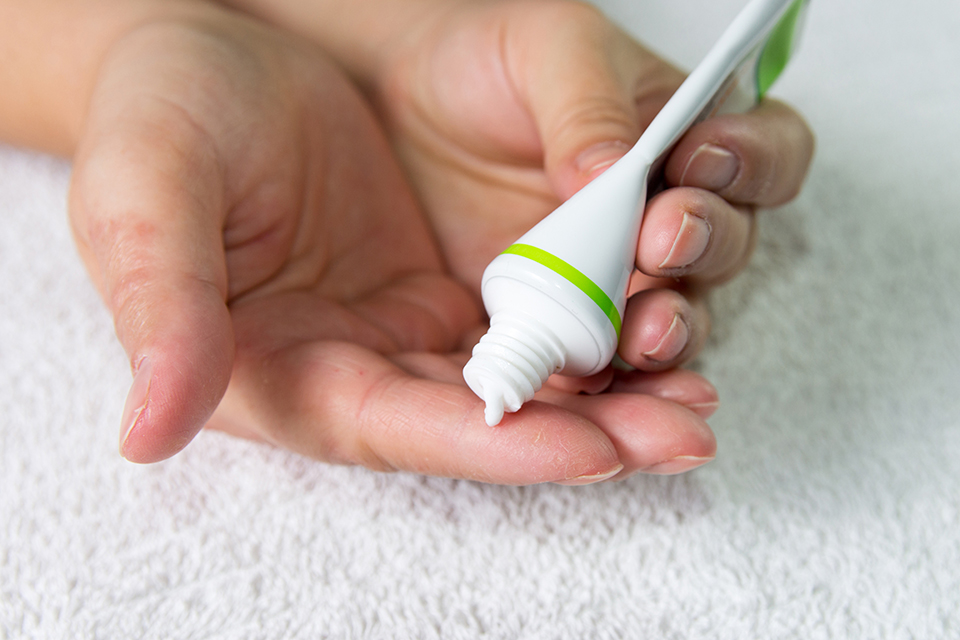
Beverages represent a substantial contributor to sugar intake in the modern diet. Sugar-sweetened beverages (SSBs) are the largest single source of added sugar in the American diet, including sodas, soft drinks, sugary coffees and teas, fruit-flavored drinks, vitamin-water drinks, and energy drinks that contain added caloric sweeteners such as fruit juice concentrates, sucrose, and high fructose corn syrup.
There are 140 to 150 calories and 35 to 38 grams of sugar in a characteristic 12-ounce serving of soda. Approximately 21% of the total energy in the American diet was consumed as beverages in 2021. While consumption of SSBs has declined over the past 10 years, a recent survey revealed a slight rebound in consumption.
There are abundant data on the positive correlation between SSBs and weight gain, diabetes, and coronary heart disease. However, according to Xiao-Yu Cai, MD, and Nan-Hui Zhang, MD, and colleagues there are few data on the relationship between intake of SSBs and the risk of mortality in patients with chronic kidney disease (CKD). The researchers conducted an analysis to examine the association between SSBs and subsequent overall death in patients with CKD. Results were reported in Clinical Kidney Journal [2022; 15(4):718-726].
The analysis utilized data from the US National Health and nutrition Examination Survey (NHANES), 1999-2014. The total NHANES population included 82,0-91 people. Following application of inclusion and exclusion criteria, the final analysis cohort included 3996 participants with CKD and complete data.
In all of the NHANES cycles, individual dietary intakes were assessed via 24-hour dietary recall questionnaires In the first two cycles (1999-2002), only one in-person 24-hour dietary recall was conducted. Beginning in 2003, the cycles included two dietary recalls. The primary recall was conducted by trained investigators at a mobile examination center and the second was a follow-up by telephone 3 to 10 days later. The beverages, nutrients, and energy intakes were calculated using the results of the recall from the 1999-2002 cycles and the average of nutritional data from both recalls in the 2003-2014 cycles.
SSBs were defined as sodas, sugary fruit juices, fruit-flavored drinks, sport and energy drinks, sweetened coffee and tea, and other sugary drinks. One serving was defined as 12 ounces.
The study outcome of interest was all-cause mortality during follow-up. Prior to December 31, 2015, NHANES data were linked to National Death Index records. The cause of death was determined according to the 10th edition of the International Statistical Classification of Diseases.
Patients were divided into four groups based on SSB consumption: (1) none; (2) >0 to <1 serving per day; (3) 1 to <2 servings per day; and (4) ≥2 servings per day. Participants were then divided into five groups based on the intake of added sugars in SSBs. Analysis of variance and Rau-Scott c2 test with adjusted sample weights for baseline continuous variables and categorical variables, respectively, were used to assess the differences between groups. Following adjustment for potential confounders, a multivariate Cox regression model was used to estimate the relationship between SBB intake and all-cause mortality in patients with CKD.
Of the 3966 patients in the analysis cohort, median age at baseline was 67 years, 22% were Black, 54% were female, and 42% had stage 3 CKD. The participants in the group with higher SSB intake were more likely to be younger, male, and non-Hispanic White, unmarried, less physically active, have a lower household poverty-to-income ratio, and lower education level. Consumption of SSBs was associated with a higher intake of total energy, dietary acid load, red and processed meat, and lower consumption of whole grains.
During average follow-up of 8.3 years, there were 1137 deaths of all causes (28%). Following adjustment for demographic and life-style factors and dietary factors, participants who consumed ≥2 servings per day had a hazard ratio (HR) of 1.80 (95% CI, 1.27-2.55) for all-cause mortality compared with those who did not consume SSBs. The association was further strengthened after adjustment for baseline estimated glomerular filtration rate, high total to high-density lipoprotein cholesterol level, hypertension, diabetes, cardiovascular disease, and cancer (HR, 1.90; 95% CI, 1.36-2.66; P for trend <.001).
In the continuous analysis, the risk of all-cause mortality was 18% higher for each additional serving of SSB intake per day (HR, 1.18; 95% CI, 1.08-1.28). Restricted cubic splines (RCSs) indicated a linear relationship between SSB intake and all-cause mortality.
Compared with the quintile with the lowest added sugar intake from SSBs, the highest quintile was associated with higher all-cause mortality (HR, 1.69; 95% CI, 1.2-2.36). The RCSs indicated a linear association between added sugar in SSBs and all-cause mortality (HR, 1.14; 95% CI, 1,05-1.24) for each increased 20 grams of added sugar per 1000 kilocalories of total energy intake.
There was no association with mortality when replacing one serving of SSBs with an equivalent amount of artificially sweetened beverages or pure juice of sweetened milk. However, substituting SSBs with an equivalent amount of unsweetened coffees (HR, 0.82; 95% CI, 0.74-0.91), unsweetened teas (HR, 0.86; 95% CI, 0.76-0.98), plain water (HR, 0.79; 95% CI, 0.71-0.88), or non- or low-fat milk (HR, 0.75; 95% CI, 0.60-0.93) was related to a 14% to 25% reduced risk of all-cause mortality.
The authors cited some limitations to the study, including not updating the baseline 24-hour dietary recall information during the follow-up period, not including other variables that could influence renal function (blood pressure, blood glucose status, salt intake, and other dietary information), and possible residual confounders even after adjustment for sociodemographic, lifestyle-related factors, diet-related factors, and comorbidities.
In conclusion, the researchers said, “We found that in the CKD population, increased SSB intake was associated with a higher risk of mortality and indicated a stratified association with dose. Plain water and unsweetened coffee/tea might be possible alternatives for SSBs to avert untimely deaths, which could be a simple, economical, clinically safe and effective choice for CKD patients. In future studies, researchers should take advantage of the latest dietary information to further investigate the life-course relationship between SSB consumption and mortality, as well as to discover the mechanism of SSB damage to the kidney.”
Takeaway Points
- Researchers reported results of an analysis of NHANES data to assess the association between intake of sugar-sweetened beverages (SSBs) and the risk of death in patients with CKD.
- Among the 3996 participants, during an average follow-up of 8.3 years, there were a total of 1137 deaths from any cause (28%).
- Following adjustment, those who consumed ≥2 servings per day of SSBs had a hazard ratio for all-cause mortality of 1.80, compared with those who did not consume SSBs.







 © 2025 Mashup Media, LLC, a Formedics Property. All Rights Reserved.
© 2025 Mashup Media, LLC, a Formedics Property. All Rights Reserved.